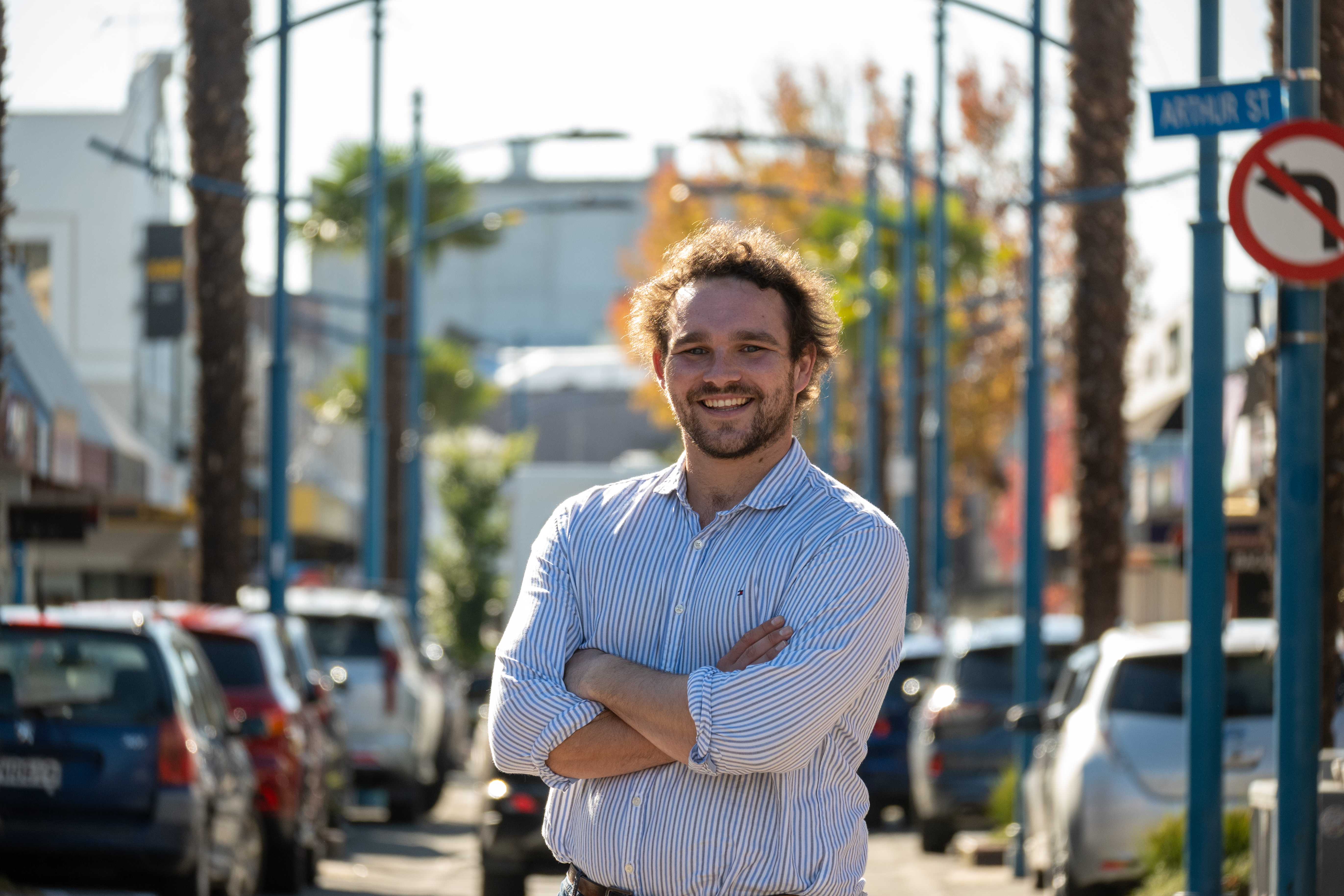Healing through growing

Don Cross’s drive to improve wellbeing have led to his Healing Horticultural courses. Photo: William Woodworth.
Don Cross set up Healing Horticulture to combine practical horticultural knowledge with wellbeing theory. He talks to William Woodworth about how the move is helping boost mental health.
The origin story of Healing Horticulture comes from Don’s joint love for gardening and work as a mental health advocate.
An experienced horticulture tutor at NMIT’s Blenheim campus, he recalls being called out of a class to help with a severe mental health situation.
Don knew then he wanted to help others struggling with depression and loneliness.
“When we talk about people’s mental health as a cliff, people don’t just throw themselves off it suddenly.
“Healing Horticulture aims to grow a hedge at the top of that proverbial cliff to block that option with another purpose,” he explains.
“Whenever I get overwhelmed, which everyone does, that story is my driver to keep going and Healing Horticulture is about finding people something to drive their wellbeing.”
Healing Horticulture is a series of 6-week Wednesday evening courses which starts again in May.
Don credits the supportive environment at NMIT for ensuring people are in a good space – both mentally and physically.
“I’ve never worked in a more supportive environment,” Don says.
“Whether that’s for people’s learning or openness to ensure that the people here are good in every sense of their lives.
“In both my Healing Horticulture course and my NMIT classes, I start by asking people how they are feeling today on a scale are from one, terrible, and five, brilliant.
“When people say one or two, I know that they aren’t having a great time in some sense of their life.
“I’m conscious when asking someone “how are you, really” it breaks down walls people put up, which is the start to a support journey.”
Healing Horticulture teaches seed sowing, weather, soil, and plant science, composting, tool sharpening and practical gardening skills.
Outdoor horticultural work boosts serotonin, which Don says is why people who love gardening feel a kind of physiological addiction to it.
In his classes, much of the wellbeing work is done organically by attendees in break-out groups and during the practical sessions.
“You learn so much more about yourself and other people when you work alongside them – I mean, I got to know my now son-in-law really well painting a roof,” Don says.
“Working alongside other people builds trust and relaxes people, and relaxed people are more open and honest with themselves and each other.”
Don tells a firsthand example on this in action, where he dressed up as a fairy on Pink Shirt Day and visited classrooms speaking about anti-bullying.
“I had six people stop me to have a conversation about their own bullying experiences and started to help them work through it.”
However, he also says that Healing Horticulture is also a response to the overwhelmed state of New Zealand’s mental health management systems.
“When there’s a six-month waitlist minimum to see a therapist, communities must start looking after one another by being present, aware, and awake to signs that people around them are struggling.
“Anyone can do it, but there’s so many other things that take up our lives that we forget how vital community, service and putting a smile on people’s faces is.”
“… what seems overwhelming is easily done when lots of people do a little.”
Don is running Healing Horticulture from 1 May – 5 June, 24 July to 28 August and 16 October – 20 November 2024
Go to www.healinghorticulture.org or email [email protected] for more information.
NMIT Horticultural Courses
Level 3
https://www.nmit.ac.nz/study/programmes/new-zealand-certificate-in-horticulture-general-level-3/
Level 2
https://www.nmit.ac.nz/study/programmes/nz-certificate-in-sustainable-horticulture/
